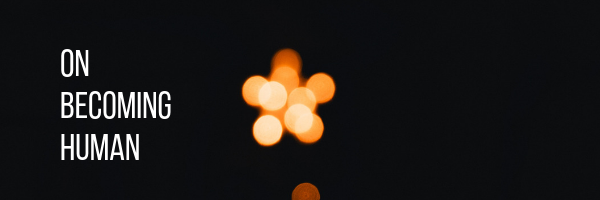On Becoming Human
Jeremiah 33:14-16
The days are surely coming, says the Lord, when I will fulfill the promise I made to the house of Israel and the house of Judah. In those days and at that time I will cause a righteous Branch to spring up for David; and he shall execute justice and righteousness in the land. In those days Judah will be saved and Jerusalem will live in safety. And this is the name by which it will be called: “The Lord is our righteousness.”
The other night, I read my daughters “Yertle the Turtle,” the famous Dr. Seuss story of an autocratic ectotherm whose thirst for power is built – literally and figuratively – on the backs of those beneath him. On his insatiable quest to rule the world, only one creature is bold enough to speak up. Way down at the bottom of the pile, a plain little turtle named Mack declares,
Your Majesty, please…I don’t like to complain,
But down here below, we are feeling great pain.
I know, up on top you are seeing great sights,
But down at the bottom we, too, should have rights.
Even at such a young age, my children were horrified. How could a community allow its members to be treated in such an exploitative way? Why did no one else speak up?
Later in the evening, house adorned in holiday glow, I found myself reflecting on a recent lecture I’d heard by Michael Gerson, a Washington Post columnist and former presidential speechwriter. Speaking at a conference of theologians, Gerson spoke passionately about the impact of polarization, confirmation bias, and dehumanization in our time. We are witnessing a moment, he argues, in which systematic dehumanization of the other is unfolding in ways that make socially acceptable practices which would once have been unthinkable. “This is my honest fear,” he said, “that a new and lesser ideal will take hold, that the strong matter more than the weak, that the winners are superior to the losers, that human dignity stops at certain groups, and certain borders, and certain religions. I am afraid this ideal will invade our laws and our hearts and change us.”
We are in the season of Advent, in which the Christian Church looks with awe and wonder to the God who chooses to become human, who puts on vulnerable flesh and ties his fate to ours. This incarnational theology requires a very particular anthropology, one that depends upon a transcendent understanding of human dignity and worth. We have value because we are known and loved by God, not as a single race or class or religious group, but as a beloved, universal community created in God’s very image.
The Advent text reveals the prophet Jeremiah, declaring that even as God’s people are forced into exile at the hands of those who will profit from their misfortune, God is preparing to raise up one who will bring God’s righteousness. It is a justice that will come in the form of human flesh and human action.
Our resistance to dehumanizing rhetoric is humanization. We participate in the radical act of God’s incarnating love when we decry cruelty and bullying in all its forms, that which Gershon calls “cosmic crimes.” We amplify the voices of those who power seeks to silence. We resist the broad grip of white supremacy, bigotry, and nationalistic xenophobia by listening deeply and holding open our hands to learning a different way. We counter division and degradation, imitating the incarnational God by caring for the neighbor beyond our border just as much as the one across our doorstep.
As we celebrate, in this season of Advent, the great inversion – that God comes not in power but as a vulnerable child – may we embody the transformative power of empathy, love, and solidarity. And may we join with wee Mack, and with bold Jeremiah, in summoning forth the courage to disrupt the status quo to call forth a new, more compassionate, more human vision for God’s beloved world.
A native of Nashville, Tennessee and ordained minister in the Presbyterian Church (USA), Katherine has worked in theological education since 2007. Prior to arriving at Vanderbilt, Katherine served as Director of the Duke Youth Academy for Christian Formation in Durham, NC, a youth theology initiative funded by the Lilly Endowment, Inc. in partnership with Leadership Education at Duke Divinity. She also served as Managing Director of Princeton Project 55, Inc. (now AlumniCorps) in Princeton, NJ, a non-profit organization that seeks to construct social change and cultivate civic leaders by mobilizing people, organizations, and networks for the public good.
 By:
By: